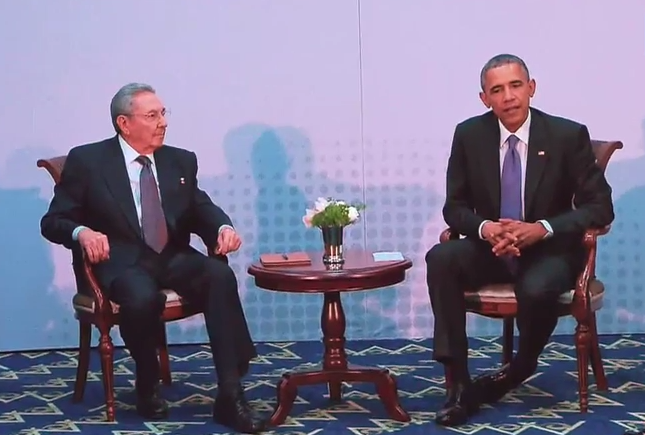Europe Might Take Another Step Back
If Spain fails to have the Common Position lifted or if it succeeds and Havana again turns down European economic cooperation, then Cuba wins once more.
This post is also available in: Español
Following what many believe was the best week of his presidency, President Obama continued to burnish his legacy on Wednesday by announcing diplomatic relations between the US and Cuba. The announcement, though expected, was historic and symbolic. Washington and Havana are sending a loud and clear message that the long era (since 1961) of estrangement is, happily, over.
Since the decision was made public by Obama and Raul Castro on December 17th, some issues needed to be addressed before opening embassies. The Cubans insisted that they be taken off the list of states that sponsor terrorism and that their embassy have access to the US banking system. Both demands were met. And presumably the Cubans agreed to the standard diplomatic protocols that US officials requested. That the bilateral negotiations succeeded augurs well for continued progress.
The path towards full normalization, however, will not be easy. For that to happen, the US embargo will have to be lifted, requiring an act of Congress. And other questions – including the US naval base at Guantanamo and pending US property claims – will have to be dealt with too. That will take time.
Despite some critical voices and political obstacles in the US, it is striking how much public support Obama’s Cuba policy enjoys – even among Republicans and even in the Cuban American community. The backlash has been weaker than expected. The old policy is discredited, and dying.
In Latin America, the move has been widely cheered. The long-awaited rapprochement removes a major irritant in Washington’s relations with the region.
It is less clear what changes will take place – and at what pace – in Cuba as a result of the new relationship and mutual interest in engagement. The economic situation on the island is dire. There are reasons to be hopeful that better relations with the US could bring more capital and opportunity. Political reform may take longer, and demand a generational change in leadership.
For Obama, the decision on Cuba secures his legacy in Latin America, and is a clear-cut foreign policy accomplishment. Even if Obama gets an agreement with Iran as he hopes, that will be more controversial than Cuba. It would not be surprising if, before his presidency ends in January 2017, Obama looks for the right moment to visit Havana. That would be a fitting, grand finale.
If Spain fails to have the Common Position lifted or if it succeeds and Havana again turns down European economic cooperation, then Cuba wins once more.
2009 has not been a good year for U.S.-Latin America relations. Despite their warm welcome at the April Summit, Latin America’s governments made life more difficult than anticipated for President Obama.
Today, signs of frustration are unmistakable in Washington and in many Latin American capitals, despite Obama’s immense personal appeal and the continued promise of a more productive partnership.
 White House
White House